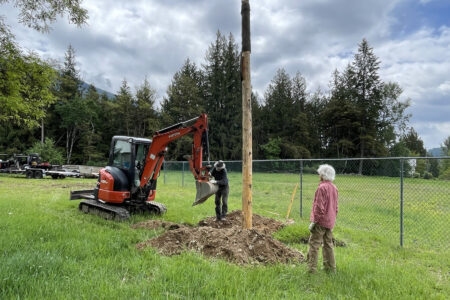Minimum wage increases coupled with new training supports
The British Columbia government is increasing the minimum wage in two stages to better reflect the province’s overall economic growth and ensure all workers benefit from B.C.’s success.
Last year, government announced a policy to index the minimum wage to British Columbia’s Consumer Price Index (CPI). Based on British Columbia’s 2015 CPI, the minimum wage this year would increase by 10 cents per hour. With British Columbia expected to lead the country in economic growth this year and next, the government has decided there is room for an adjustment to the minimum wage rate beyond B.C.’s CPI.
The first increase will be 40 cents and bring the minimum wage rate to $10.85 per hour, effective Sept. 15, 2016. This new rate includes the 10 cents scheduled for the 2015 CPI, plus an additional 30 cents.
A second increase of 30 cents plus an amount based on the 2016 CPI (estimated to be 10 cents) will bring the minimum wage rate to $11.25, effective Sept. 15, 2017. The 2016 CPI will be available from Statistics Canada by March 2017.
“One of the first actions I took when I became Premier was to raise the minimum wage,” said Christy Clark, Premier of British Columbia.
“Raising the minimum wage twice over the next two years, coupled with some targeted supports for young people and businesses, will help everyone share in the benefits of our growing economy.”
However, not everyone is jumping on the BC Government bandwagon.
The BC Federation of Labour said the government is still not listening to British Columbians on minimum wage rates with an increase that leaves working people below the poverty line, says BC Federation of Labour.
“It is clear that our Campaign is having an impact and has forced the government to reconsider BC’s minimum wage,” said Irene Lanzinger, President of the BC Federation of Labour.
“Unfortunately, the BC Liberals are still not taking the steps needed to lift a person working full-time above the poverty line.
“This is just one more missed opportunity for the Premier and the government to do what’s right.”
The BC Fed has been campaigning for the government to put a plan in place to reach a $15 per hour minimum wage, a wage that would put a full-time worker above the poverty line.
In a recent poll conducted by Insights West, 83 percent of British Columbians agreed that minimum wage should put a worker above the poverty line. Seventy-six percent supported raising minimum wage to $15 per hour.
“The Premier’s announcement today is not getting us close to what workers in this province need and deserve,” said Lanzinger. “A $10.85 per hour minimum wage leaves a full-time worker nearly $5500 below the poverty line. That is simply unacceptable.”
“While Clark enjoys significant salary bonuses from her party, workers remain in poverty. She has become more and more disconnected from the people of this province who struggle every day to pay the rent, put food on the table and pay the hydro bill.”
The B.C. government also is reaffirming its commitment to reducing the small business tax rate by 40% by 2017-18.
This would mean a small business that is incorporated with $100,000 in active business income would have its taxes go from $2,500 to $1,500, savings of $1,000 annually.
In addition, the Province is investing $2.88 million in new training programs to help with labour shortages in the province. The programs will be help young people, small businesses and employers in the retail, hospitality, agriculture and aquaculture sectors.
The first program is a $2.38-million investment through the Canada-BC Job Grant. This new Job Grant stream will help businesses invest in training by covering the cost of training a newly hired employee who was unemployed prior to training. The program will include:
- A new $2-million unemployed stream to the Canada Job Grant that will cover 100% of training costs up to $15,000 per person for an employer who hires an unemployed individual;
- $300,000 will be targeted to youth under the existing $1-million Underrepresented Groups stream of the Canada Job Grant to support employers training and hiring youth;
- A $80,000 partnership with Small Business BC as the delivery partner to help small businesses assess their training needs, identify training options and apply for the grant; and
- Travel costs of participants or trainers as eligible expenses to increase access for businesses in small and remote communities.
The second program is an investment of $500,000 to expand the existing Get Youth Working program. This program currently provides work placement, on-the-job skills training, including short-term certificate training as required, and a wage subsidy.
These programs are currently offered throughout B.C. to youth aged 15 to 29 years. These new funds will be earmarked for youth being trained and hired employees in the retail, hospitality, agriculture and aquaculture sectors.
The minimum wage rate for liquor servers also will increase by the same amounts and on the same dates as the general minimum wage. The differential of $1.25 between the general minimum wage and liquor server rate will be maintained.
As well, the daily rate for live-in home-support workers and live-in camp leaders, as well as the monthly rates for resident caretakers and the farm-worker piece rates (for harvesters of certain fruits and vegetables) will increase proportionate to the general minimum hourly wage increases on Sept. 15 in 2016 and 2017.


























